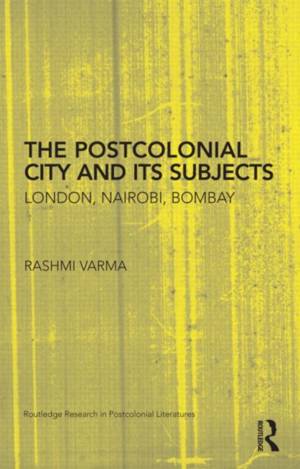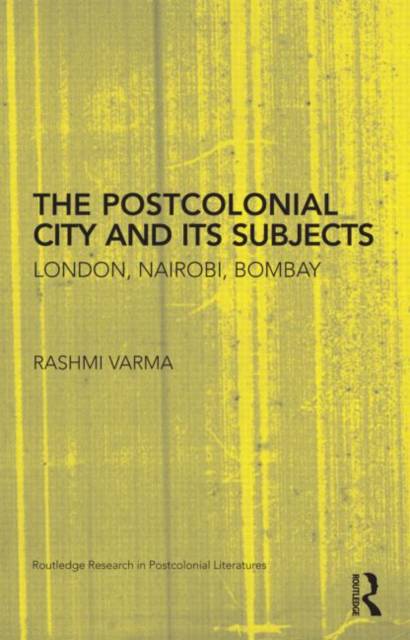
- Retrait gratuit dans votre magasin Club
- 7.000.000 titres dans notre catalogue
- Payer en toute sécurité
- Toujours un magasin près de chez vous
- Retrait gratuit dans votre magasin Club
- 7.000.000 titres dans notre catalogue
- Payer en toute sécurité
- Toujours un magasin près de chez vous
Description
This book considers twentieth and twenty-first century literary and cultural formations of the postcolonial city and the constitution of new subjects within it. Varma offers a reading of both historical and contemporary debates on urbanism through the filter of postcolonial fictions and the cultural fields surrounding and containing them. In particular, she presents a representational history of London, Nairobi and Bombay in the twentieth and twenty-first centuries and engages three key theoretical frameworks--the city within postcolonial theory and culture (its troubled salience in the construction of postcolonial public spheres and identities, from local, rural, ethnic/"tribal", and regional to "national", cosmopolitan and transnational subjects and spaces); postcolonial fictions as constituting a new world literary space and as a site of the articulation of contending narratives of urban space, global culture and postcolonial development; and postcolonial feminist citizenship as a universal political project challenging current neo-liberal and post neo-liberal contractions and eviscerations of public spaces and rights.
Spécifications
Parties prenantes
- Auteur(s) :
- Editeur:
Contenu
- Nombre de pages :
- 244
- Langue:
- Anglais
- Collection :
- Tome:
- n° 34
Caractéristiques
- EAN:
- 9780415880398
- Date de parution :
- 05-08-11
- Format:
- Livre relié
- Format numérique:
- Genaaid
- Dimensions :
- 152 mm x 229 mm
- Poids :
- 498 g







